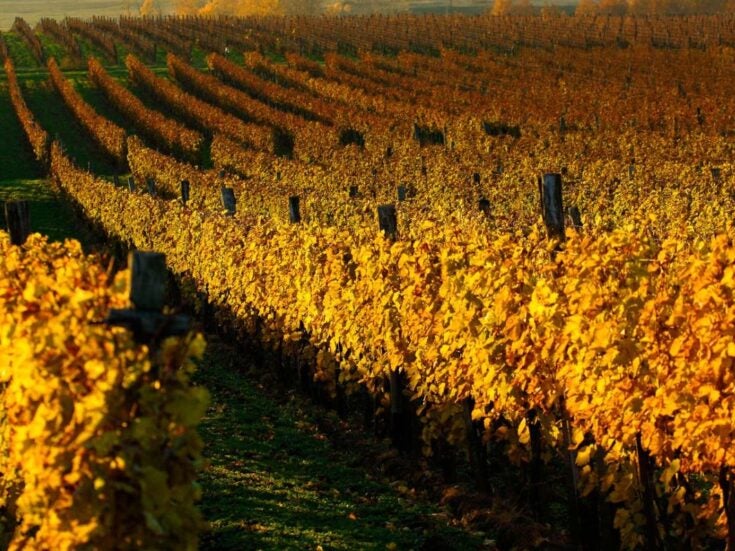
William Sitwell falls hook, line and sinker for Massimo Riccioli’s fishtastic new restaurant at the Corinthia
MASSIMO RICCIOLI LEADS me into a brand spanking new kitchen at his opulent David Collins-designed restaurant near Trafalgar Square in London. There’s tension in the air as the chef’s No 2, Francesco Bisceglie, gives an underling a tongue-lashing. The abuse rattles off his tongue in his native Italian, so I’m none the wiser as to the content. Massimo approaches the bleary-eyed cook who seems to be the target of this fury. He grabs a bottle of olive oil, sprays it over the fish he’s cooking, then gives it a splash of wine and offers a word of quieter advice.
Then he takes a carton of pasta and shows it to me. ‘You see this?’ says the remarkably youthful-looking and sprightly 57-year-old. ‘This is dry pasta from the north of Italy. It is the best pasta you can cook with. Don’t believe people when they say that fresh is better, because it isn’t. This takes about four and a half minutes longer to cook, but it is the best in the world.’
You don’t take this kind of statement lightly from an Italian chef who owns one of the most famous restaurants in Rome. Founded by his father in 1966, La Rosetta, just a few steps from the grandeur of the Pantheon and the Piazza Navona, is one of the best seafood restaurants in that city.
‘OK, you need some lunch,’ says Massimo, so we head back to the restaurant. As I leave I catch the eye of Francesco, he mutters something in English just loud enough for me to hear. ‘Everything is fine,’ he says.

Away from the coalface, Massimo talks of his life, his love of fish and how he came to be in London. This is not very familiar territory, but he is slowly finding his feet. The opportunity to open a restaurant came from the owners of the new Corinthia Hotel, with its front door opening on to Whitehall. The Corinthia is a luxurious redesigned Victorian hotel that successfully combines traditional five-star grandeur with a fresh, modern feel. Complete with a stunning bespoke Baccarat chandelier, a hidden Parisian-esque courtyard and showcasing an eclectic mix of British art, it’s set to put this currently overlooked street in London on the map.
The owners wanted to open a restaurant every bit as upmarket, high-quality and Italianate as their hotel and, as habitués of La Rosetta, it was only natural they turned to Massimo.
He says he loves London, although the difference between coming as a tourist and running a restaurant is immense. His first challenge was to find good suppliers. ‘I went to Billingsgate market and I spent ages talking to people and studying the fish. There was sea bass, red mullet, scallops, lobster, all types. Not like the Mediterranean, but I thought, “Not bad.” There is enough here for me to make a menu.’
And it’s an impressive one. His aim is to match fish perfectly with ingredients that never threaten to overpower it. Antipasti include crispy squid and cod with courgette, fresh mint and tomato sauce and grilled octopus with avocado and aioli. Inviting pastas feature scallops, razor clams and crab. The secondi platti see sea bass in lemon sauce, crispy red prawns and green beans and monkfish gratin with asparagus, capers, olives and almonds.
‘My style of Italian cooking is not to use big stocks and long cooking times,’ he says. ‘The less you cook, the easier it is to digest the food. Cook too much and you oxidise the food and your liver suffers.’ Speaking of which, some dishes arrive. I haven’t ordered, which is the way Massimo likes it. ‘My dream is not to give people a menu. I like to say, “Don’t order, I will cook for you.”’

There’s a plate of oysters from around the British coast and a meltingly delicious dish of mackerel ceviche. Raw scallops come with an unusual sweet vanilla salt, and there’s some sea bass sashimi. So far, so very good. Massimo turns to the time he moved from being a cameraman to restaurateur.
Illustration by Richard Beacham
‘I was working in the film business,’ he says. ‘And my father said he was going to sail. He was interested in sailing.’
‘So your father decided he didn’t want to run the place any more but liked the idea of sailing?’ I ask. ‘That’s right,’ he nods, ‘he wanted to sail.’
‘So, a big boat?’ I say. ‘I mean, was this a long journey out to sea or just some nice afternoons on the water?’
Massimo looks at me as if I’m going mad. For a moment he pauses and then continues. ‘So,’ he says, ‘I decided to buy the place from him.’ At which point the penny drops and I realise his father was interested not in sailing but in selling his restaurant.
This brief Italian accent incident over, a plate of spaghetti with scallops arrives. I become a convert to his dried pasta. There’s a subtle creaminess to it.
‘With this pasta, you can have a delicious plate of food by just cooking it and adding a splash of extra virgin olive oil,’ he says. ‘No cream, no cheese, nothing else.’
And what of the food in London today? He likes Locanda Locatelli, although it is, he says, ‘a French-style of Italian cooking, too creamy, too much butter’. He likes Terroir and Joël Robuchon and ‘I love the pub. As a concept it’s the best, the people, the decoration. Although the food is so-so.’
As to the issue of fish sustainability, he does offer some assurances that the fish he buys is sustainable but he also, almost as an aside, says: ‘Italians are not too worried about these things.’
Still, at least his pasta’s good.






